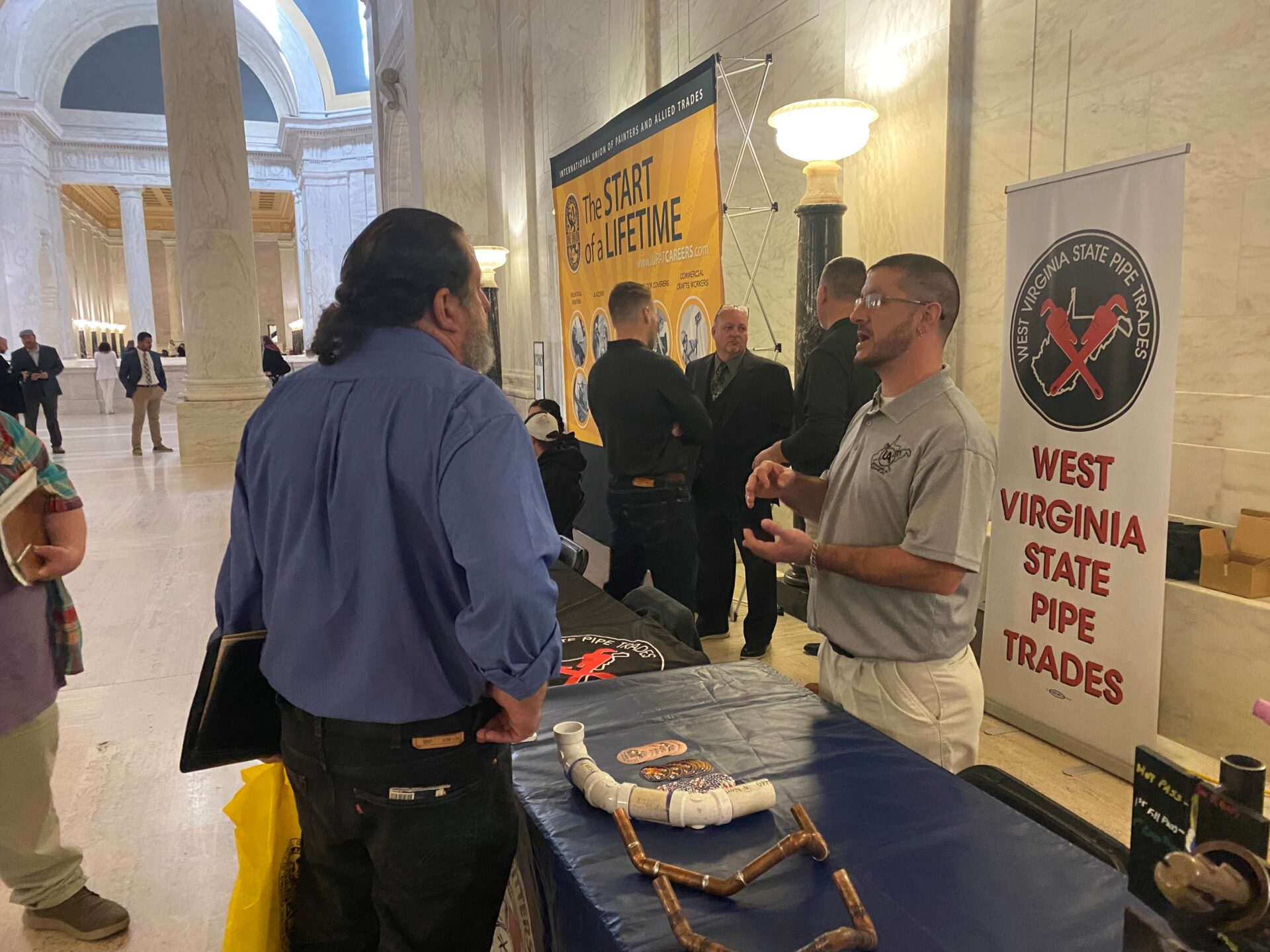West Virginia’s working men and women took center stage in the Capitol rotunda Monday.
On Trades Apprenticeship Day at the West Virginia Legislature, the old is new again when it comes to learning an occupation.
Construction, maintenance, renovation, design, the job themes here update what goes back to the medieval apprentice times of the butcher, baker and candlestick maker. West Virginia is fifth in the nation for apprenticeship programs. George Capel, the government relations director for the West Virginia State Building and Construction Trades, said the “earn while you learn” initiative puts thousands on a direct career path.
“You have a job while you’re in the program, and you’re paid a living wage while you’re receiving your education,” Capel said. “It’s tuition free for the apprentice so there are a lot of great benefits for the apprentices in these programs.”
Capel said he’s concerned with Senate Bill 59, which has been stalled in the House Workforce Development Committee since Valentine’s Day. The measure would cut unemployment benefits from 26 to 12 weeks. Capel noted that many construction jobs are temporary and/or seasonal.
“Folks who are on unemployment are there through no fault of their own, so it’s not just like they’re staying on there for an indefinite amount of time,” Capel said. “You have to have earned wages in West Virginia for the last 18 months to be on those rolls, and it’s important to us because those unemployment benefits get our folks to the times when there is no work, whether that’s the winter months or time between projects, we rely on that.”
These trade folks want to see an equivalency program, similar to what they have in Michigan and some other states. A program where you complete your trade apprenticeship and you earn an associate’s degree.
Shawn Young from Buckhannon completed a five year electrical apprenticeship, went to work as an electrician and is now a IBEW union organizer. Young said earning that degree from an apprenticeship would open more career doors.
“I work for the union, other people go work for contractors directly, maybe in the office as a project manager, or an estimator,” Young said. “Some of those positions with these big companies require some kind of college education even if it’s not even related. In a related field to have that degree and then be able to continue to pursue higher education afterwards would be a great thing.”
Twelve construction craft unions, all supporting apprenticeships, were represented at the Capitol.
